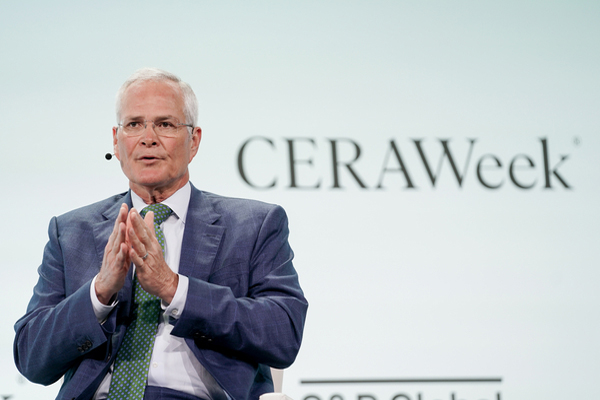
Kevin Crowley, Bloomberg News
HOUSTON
EnergiesNet.com 03 21 2024
Exxon Mobil Corp. won’t move forward with one of the world’s largest, low-carbon hydrogen projects if the Biden administration withholds tax incentives for natural gas-fed facilities, Chief Executive Officer Darren Woods said during an interview.
Under the current guidelines, incentives are earmarked for projects that produce so-called “green” hydrogen by using water and renewable energy. But Exxon believes it can produce “blue” hydrogen from gas by trapping carbon emissions. As a result, the company asserts it proposed Houston-area facility ought to qualify for tax credits under the Inflation Reduction Act, Woods said at the CERAWeek by S&P Global conference on Monday.
Giving preference to “green” hydrogen over “blue” supplies would amount to a government attempt to favor certain technologies rather than simply focusing on cutting overall emissions, he added.
“If we find the regulation gets heavily influenced by the lobbying and what I would say is people trying to pick winners and losers then we won’t move forward with it,” Woods said. “That would violate one of the fundamental principles which is just to focus on reducing emissions and let the market and the companies figure out how best to do that.”
Last year, Exxon said it could have the Baytown, Texas, facility up and running by 2027 or 2028 with the right incentives and permitting. It would produce 1 billion cubic feet hydrogen per day and capture 98% of associated carbon, helping reduce the adjacent oil refinery’s emissions by as much as one-third.
“We’re investing billions of dollars to reduce the carbon intensity of our natural gas,” Woods said. “Why would the regulation not give companies doing that any credit? That will basically instantly stop investments to reduce carbon intensity by the industry as a whole.”
On balance, Woods is supportive of the Biden administration’s Inflation Reduction Act, which “showed a willingness to find solution sets” to global warming that go beyond just renewable energy. Federal support for technologies like carbon capture, hydrogen and biofuels “opens the door for us as a company to start trying to contribute solutions,” he said.
Exxon has pledged to spend more than $20 billion on low-carbon technologies over the next few years, stepping up efforts to address climate change after the passing of the IRA in 2022. The bipartisan bill unlocked billions of dollars of tax incentives to boost investments in energy and lower emissions.
But Woods said it’s not enough by itself to put the world on a path to net zero by 2050. For that to happen, there needs to be a broad recognition of the cost and timeline of moving from a fossil-fuel based energy system to a low-carbon one, he said. There also needs to be a widely accepted carbon-accounting mechanism.
“The narrative and a lot of the activists in this space have made it a one-dimensional issue which is just get rid of oil and gas, fossil fuels and coal,” he said. The focus has been on the “downside” of CO2 emissions rather than the cost of losing access to affordable, reliable energy, he added.
“You can’t give up the benefits that quickly,” Woods said. “Society can’t tolerate that, the hardships that come with the lack of those benefits.”
bloomberg.com 03 18 2024












